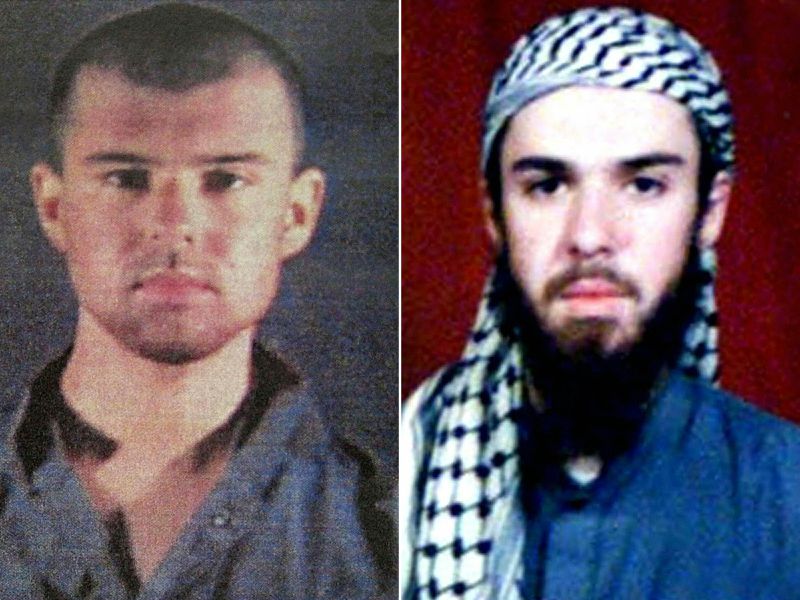Washington: John Walker Lindh, dubbed the ‘American Taliban’ after he was captured fighting for the Islamist insurgents in November 2001, will be freed from prison Thursday amid concerns he has not forsaken the radical ideology that took him to Afghanistan.
Known as ‘Detainee 001’ in the US War on Terror, Lindh’s release after 17 years in prison is resurrecting memories of the September 11 attacks and underscores the fact that, almost two decades later, the US continues to battle the Taliban with no end in sight.
Images of Lindh — bearded, dirty and disheveled and strapped to stretcher after his capture — came to symbolize the country’s enemy.
While Lindh’s family and supporters say he never took up arms against his own country, others say he remains a committed jihadist and a danger to society.
In a letter this week to the Federal Bureau of Prisons, two senators asked how his alleged threat would be contained, citing unproven allegations that he ‘openly’ supports extremist violence.
And on the eve of his expected release, a Los Angeles television station, KNBC, said it had received letters from Lindh during his incarceration in which he allegedly praised the Islamic State group and called himself a political prisoner.
It was unclear however why the letters, dating back to 2014 and 2015, came to light just now.
But they could complicate any effort to settle back into American society.
Lindh, 38, is being released from the high-security prison in Terre Haute, Indiana three years early for good behavior in a 20 year sentence.
The quiet son of a middle-class couple who lived north of San Francisco, he converted to Islam at 16 years old and travelled in 1998 to Yemen to study Arabic.
After returning home for several months, Lindh went back to Yemen in 2000, and then on to Pakistan to study further in a madrassa, or religious academy.
In mid-2001, ostensibly drawn by stories of the mistreatment of Afghans, he enlisted in the Taliban’s fight against the Northern Alliance.
After the United States intervened in Afghanistan following the September 11, 2001 attacks, Lindh was one of hundreds of Taliban fighters captured by Northern Alliance forces November 25.
He revealed his American identity to two CIA officers.
One of them, Johnny Micheal Spann, was killed in a prisoner revolt hours after he interrogated Lindh, making him the first American killed in post-9/11 conflict in Afghanistan.
While Lindh had no role in Spann’s death, his case became politically and emotionally entwined with it.
Once back in the United States, he was branded a traitor and accused of murdering Spann.
Lindh was charged with multiple counts of terrorism and conspiracy to kill Americans, with politicians and generals demanding he be given the death penalty.
But in July 2002, Lindh pleaded guilty to much-reduced charges of illegally aiding the Taliban and carrying weapons and explosives in the commission of that crime.
His 20-year sentence was declared a ‘victory for the American people in the battle against terrorism’, but raised early questions over how US officials were physically and legally treating War on Terror detainees.
AFP
